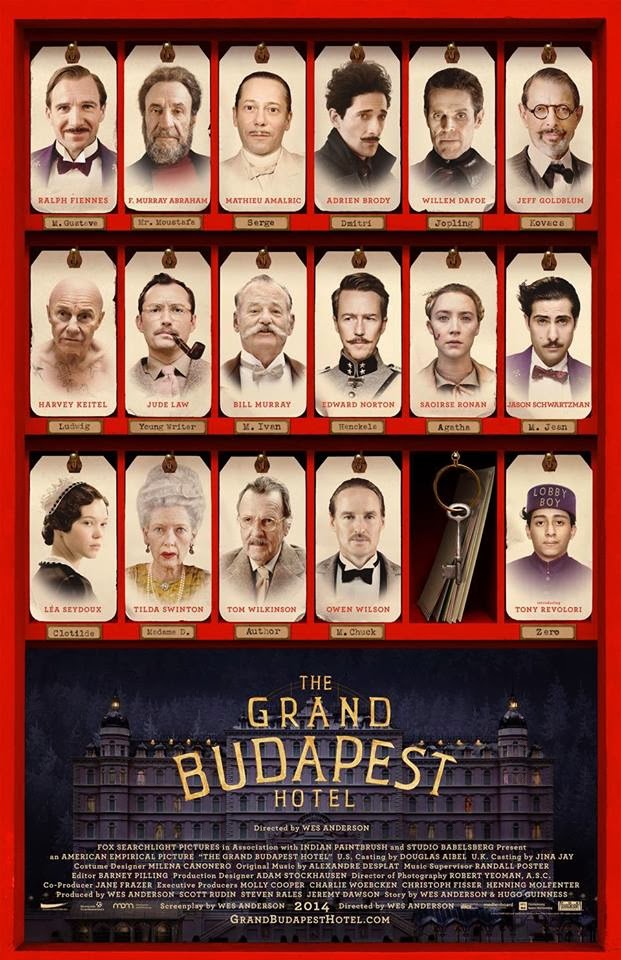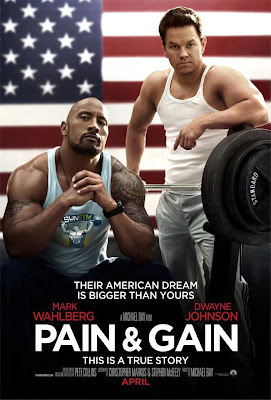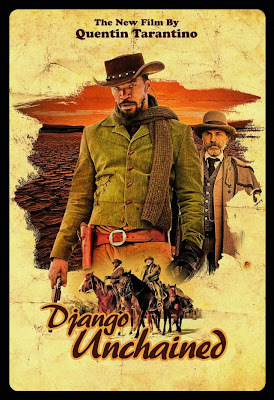Wes Anderson’s Style Adorns ‘The Grand Budapest Hotel’ (Movie Review)
The
Grand Budapest Hotel: 4 ½ out of 5
Gustave: Get your hands off my lobby boy!
The
Grand Budapest Hotel is a film not only packed with
characters, sets, costumes, and all the things that tend to typify
writer/director Wes Anderson’s style, it is also packed with story. It is becoming more and more clear to me how
much Anderson enjoys having films that are about stories being told to an
audience. There are frequent themes that
have been present in Anderson’s other films, namely family, which is clearly seen
in The Royal Tenenbaums, The Life
Aquatic, Fantastic Mr. Fox and all of his other films as well, which is all
well and good, but The Grand Budapest
Hotel really goes out of its way to show us that it is a story within a
story that is being told to another person.
The result is a film that finds a way to present something that will be
entirely familiar to everyone who recognizes Anderson’s style, but ends up
feeling like a comment on storytelling itself.
The film combines multiple genres in a rather go-for-broke fashion,
while still finding the time to be thoughtful in regards to its key characters,
and does not let narrative constraint get in the way.
A number of layers are peeled back in order to get
to the main storyline, as the film uses a framework the takes us further and
further back in time, as we realize we are watching the story of someone
reading in a book, which is about another person being told about events from
the past. That is a complicated
statement, but so is the film’s approach to getting to its core plot, which is
about a dazzling hotel concierge and his faithful lobby boy. Ralph Fiennes stars as Gustave H., the
concierge who is a hit with the staff and all of the guests (mainly the older women)
in a hotel located in the fictional Republic of Zubrowka. Tony Revolori plays the lobby boy, Zero, who
basically serves as Gustave’s right-hand man, even after a series of events
leads to Gustave’s imprisonment and subsequent prison escape, as he goes on an
adventure to prove his innocence.
Anderson is not interested in making this a story of
epic proportions, as the film barely lasts more than 90 minutes, but he does
pack the cast with a large number of players, many of whom have been featured
in his 7 previous films. Something about
this all works though. The communal
experience that came with the production of this film practically suggests that
this cast is more of an acting troupe.
Familiar faces do not feel like the film is winking at you, but rather
allowing you to enjoy the return of certain favorites like Bill Murray or Owen
Wilson for a time, before turning over to other favorites or new members like
Fiennes or young Saoirse Ronan, who plays a baker’s assistant and Zero’s love
interest. It does not hurt that every
performance does feel spot on, with Fiennes, in particular, really delivering
in full on his deft and quite charming character.
I actually do find it interesting that Anderson has
been able to get to this point where he can have a high level of talent that
also includes Edward Norton, Adrian Brody, Willem Dafoe, Jeff Goldblum, Harvey
Keitel, and Tilda Swinton, among others, simply show up for a time, deliver
what is required of them, and simply exit the film. I would imagine it takes a great amount of
comfort as a director to manage that kind of task, while still allowing for a
film that respects its characters enough for you to care about the plights that
matter most, without discounting the effort put into even the most minimal of
roles. All of that and The Grand Budapest Hotel still has
plenty of style to go with the character-based comedy/drama on display.
Wes Anderson has always been able to create unique
worlds in his films. While his
screenplays have a dry sense of humor in the dialogue to go along with the very
autumn-themed and idiosyncratic presentation of his settings, which have led to
some not quite caring for all of his features in the same way I seem to have, it
continues to tap into what works for Anderson as a storyteller. Just as authors have particular writing
styles, Anderson uses his filmmaking sensibilities to inform the nature of The Grand Budapest Hotel. The hotel itself features very specific
colors, decorations, costumes, and more to provide it with an identity. The screwball/adventure/caper nature of the
story allows for Anderson to utilize old fashion filmmaking techniques to communicate
some of the action taking place on screen in a way that is fitting for this
film, as well as the ones he has drawn inspiration from. I find a sense of fun in all of this. Even as the story progresses and we learn
enough about certain characters to realize that the overarching story has an
eventual sadness to it all, the concept of life being an adventure, which is
very akin to something explored in Anderson’s film The Life Aquatic, stands as a fine reason for me to get behind a
film that has a specific style, but one that does not outweigh the character-based
story being told.
As far as basic entertainment value goes, the film
is likely going to be less accessible to those who are not rampant Wes Anderson
fans, but it has a large enough cast to hopefully engage general audiences and
ideally prove me wrong. While I found Anderson’s
previous film, Moonrise Kingdom, to
be one of his most accessible features, The
Grand Budapest Hotel has a certain wackiness to it, which may or may not
hold it back from a larger embrace. That
said, there is a lot of humor in this film, which aids this large cast and
sprawling story. There is ambition to be
found in the way this film moves through different timelines (signaled by the shifting
aspect ratios) and approaches its more adventure-based scenarios, such as a
high speed chase down a mountain or the aforementioned prison escape. Along with the playful score by Alexandre
Desplat, the film has certainly attempted to be as all-encompassing as it can,
when it comes to presenting a visual feast for the eyes, backed up by lots of
actors all game for Wes Anderson’s style of fun.
Getting back to this being a film about a story
being told within a story, The Grand
Budapest Hotel manages to get through its narrative layers and tell a key
story that is a mix of all sorts of genres and motifs, but still effectively well
done. The film finds a way to have its
characters contradict themselves in ways that make them all the more humorous,
while also layering in the profound aspects of a friendship that becomes
embroiled in innocent romance, villainous treachery, and even the political
state of affairs regarding the country the characters occupy. The film is a triumph in the way it finds
balance in all of this. The Grand Budapest Hotel is a beautifully
shot, beautifully made film, with performance tuned right into what Wes
Anderson knows how to deliver upon, especially in this level of comfort, which
is evident in the confidence of his direction that is on display. I tend to rewatch Anderson’s films a lot and The Grand Budapest Hotel is one that I
will likely find myself checking into quite often.
Gustave: I approve of this union.
Aaron
is a writer/reviewer for WhySoBlu.com.
Follow him on Twitter @AaronsPS4.
He also co-hosts a podcast, Out Now with Aaron and Abe, available via iTunes or at HHWLOD.com.
He also co-hosts a podcast, Out Now with Aaron and Abe, available via iTunes or at HHWLOD.com.













Comments
Post a Comment